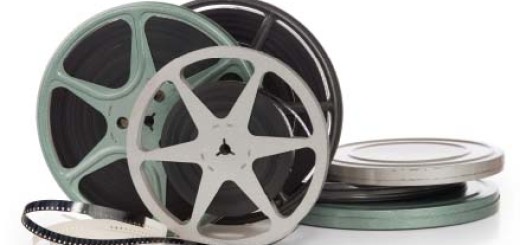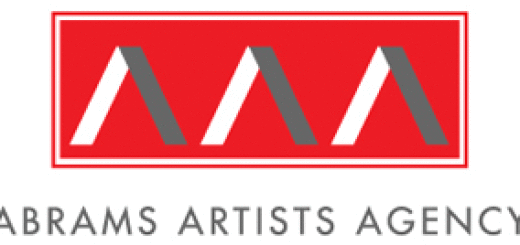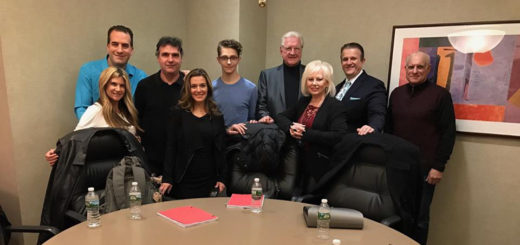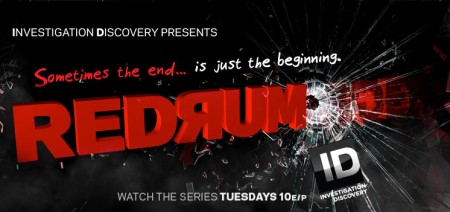Amy Gossels on Producing, Casting & Auditioning
Originally published June 10, 2010
Updated Wednesday, May 11, 2016
Recently I had the opportunity to speak to New York Casting Director and Producer Amy Gossels. Our conversation ranged over the ways she gets involved with new filmmakers and indie projects, to the value of actor workshops, as well as her thoughts on some actor “do’s and don’ts”.
Amy Gossels has cast so many well-known commercials, features and television projects. Her feature film casting credits include “Something’s Gotta Give” starring Jack Nicholson and Diane Keaton, “Godsend” starring Robert DeNiro, Joe Maggio’s Sundance hit “Milk & Honey” and Duncan Roy’s “Picture of Dorian Gray” starring David Gallagher and Christian Camargo, to name just a few. In addition to her extensive work in feature films, commercial and television casting credits, she has also produced more that 30 award winning short films, including Sundance and Academy Award Winner “Zen and the Art of Landscaping” starring Mark Blum.
I am honored that Ms. Gossels agreed to be apart of my first journalistic interview. Here are excerpts from our discussion:
I’d love to start our conversation out by asking how you become involved in a project? And whether or not there is any difference in how different project types are cast?
Amy Gossels: Projects come to me in a variety of ways. I’ve been in the business for about 20 years, so I have a lot of long-term relationships the directors and producers. Very often, a project comes in through someone I’ve already worked with who has a new project coming up — and often projects come in via referral. A lot of filmmakers and producers become new clients of mine because they asked their filmmaker friends who their casting director was. So, I get a lot of new business from filmmakers and producers who were really pleased with my work and pass my name along to their colleagues.As for whether there’s a difference in how different types of projects are cast, absolutely. The process varies greatly from one project to another, and there so many variables that determine the process, including the type of project itself, the timeline, the budget, and how hands-on the director and/or clients want to be in the process. In fact, this subject is so broad, it probably deserves an interview of its own!
So it’s really a word of mouth business on both sides, both for the actor and for the casting director?
Amy Gossels: Yes, very much so. I do maintain a listing in New York 411, which is the most widely used and respected resource in our business, and a directory that will only accept your listing if you’re established industry and have recommendations from existing industry who are already listed. So, because of that listing, I do get occasional cold calls about upcoming projects and the occasional opportunity to establish new professional relationships out of the blue. But overall, I would say my work breaks down to about about 60% repeat clients, about 25% clients who were referred by someone I’ve worked with, and about 15% new clients who call me cold and are interested in striking up a new professional relationship and often begin by introducing themselves and asking for an estimate for an upcoming project.
You have also produced a number of films. Did your role as producer evolve out of casting or was it maybe the other way round?
Amy Gossels: Actually it evolved the other way around! I started in this business just over 20 years ago as a producer. It all began when a few independent feature scripts were sent my way, either through friends in New York or friends from college. I went to Brown University, and quite a few classmates had gone on to pursue independent film. And one of the scripts I read got me particularly excited, so I told the filmmaker I’d like to produce his film.
I took on the project, but as we were working with a micro-budget, there was no money budgeted to hire a casting director. So, in addition lining up key crew and department heads, like production design and cinematography, I was also getting the script out to well known actors I knew while running auditions with less established actors. I was able to attach some name actors to my first couple of projects even though there was no money, and I discovered some fantastic soon-to-be name actors in process and cast them in their very first roles, outstanding actors like Maria Bello, who went on to have brilliant careers. So, I put great casts together for my first couple of productions, despite their micro-budget. And on these low-budget indies, there were a lot of crew members who ended up going into other areas of production, as is often the case. For example, the camera operator on one of my early films went on to open a production company and he immediately started hiring me to cast, because he knew the cast of the production where we first collaborated came on board through me. So, technically, my casting career was an offshoot of my early career as a producer.
To this day, I continue to produce, and am motivated to do so when I get excited about a project and want to get involved beyond bringing cast to the table by fully championing the project. These days, when I take on the role of producer, I strive to help raise the bar of the film on various levels, from pre-production through post. I often contribute early on by collaborating on the script, bringing established keys on board (cinematographer, production designer, editor, etc.), attaching name actors with whom I’ve maintained personal relationships — and then in post, by giving editing notes and helping with film festival strategy, among other things. I’m connected to quite a few film festivals because I’ve produced and cast many film festival reading events, served as a juror at various festivals and attended with many of my films over the years. So, I often get involved on a level beyond casting and take on the role of producing when I really believe in a project and the filmmaker.
What tends to distinguish a project that you might be interested in producing? Does it tend to be primarily based on script or is it also who you are working with?
Amy Gossels: It’s a little bit of both. First and foremost, I have to like the director and believe in the project and his or her vision for the project. I also have to have a sense that the filmmaker is someone I want to work closely with for a long period of time, as the process of producing is a marriage of sorts. Once in a while, I don’t know the director all that well beforehand. For example, I recently co-produced and cast a feature, “Humdinger”, and the director was referred to me by a filmmaker friend, for whom I had just cast a short film. I liked the script and I liked him on the phone. There was an immediate personal and creative connection, even during our initial phone conversation. I jumped on board because I liked the material and he came through someone I know and enjoyed working with and I had a sense that I would enjoy working with him as well. And I did! We didn’t even meet in person until we were almost finished shooting. As for the types of projects that appeal to me, I’m most drawn to scripts that blend intelligence, humor and heart. When those three key ingredients are present, we’re off to a very good start.
Let’s get back to casting for a second. One thing that I immediately noticed about you is that you have a very approachable and actor-friendly demeanor. Let’s talk about some of the things you do to help new actors. For example, how much is teaching a part of your business?
Amy Gossels: Well, we offer a couple of types of workshops by invitation. My associate Eliza sets up workshops where we invite actors of all levels to work with the two of us in two mini back-to-back one-on-one coaching sessions. It’s a matter of about 15 minutes –and amazing what we can be accomplished and how we can reshape an actor’s audition in a short amount of time when we’re working in a very focused one-on-one way. We’re dedicated to giving very personalized hand-on instruction, teaching actors critical skills and technique, so they come away with something really valuable. We also offer a 4-session Evening On-Camera Series, again by invitation, and this intensive series is designed to empower actors with all the tools and insight needed to succeed in the business, while solidifying audition skills and on-camera confidence and exposing them to representation opportunities. Our goal is to very specific and targeted, i.e., prepare actors on every level so they’re able to get out there and work more. Many actors have shared their workshop experience on our Amy Gossels Casting Facebook business page. As our workshops are never advertised, actors are welcome to email us for details and availability at: amygosselsworkshop@hotmail.com
I don’t know if you’re aware of this, but there has been a great deal of online debate on workshops lately, for example on Facebook and Twitter, about the State of California’s new law which was recently referred to as the “Casting Workshop Crackdown” by BackStage? In fact several LA-based CDs, such as Bonnie Gillespie, have written extensively about it. Are you familiar with this? Basically, as I understand it, the core of the discussion seems to be centered on whether or not there is an educational component to certain workshops. The debate suggests that in some cases workshops are being misused simply to get actors to pay for auditions. For example say a $5000 weekend workshop where actors parade in front of a panel of agents.
Amy Gossels: Well there are a lot of organizations out there that I would not endorse, like some of the weekend forums, where industry is paid to simply show up and not to teach. It’s very different when you’re running your own workshops, especially if your goal is to truly help advance actors’ technique. With our workshops, I’m wholeheartedly committed to achieving major improvements and strides in the actor’s work, so they can go out and deliver more successful auditions and book more work. I strive for real, visible results and achieving these results is what makes the experience rewarding for me too. The actors we work with are always very appreciative and we regularly hear from them as to how our workshops advanced their careers, which is the best feeling in the world. So, teaching is something I’m thoroughly committed to and enjoy immensely.
How many actors come to you come from agencies verses Actors Access versus Cold Submissions?
Amy Gossels: Its really a pretty even split. We are just as happy to call people in directly, as we are through agents and managers. Agents and managers submit a lot of actors we’ve never met before and in many cases, the direct submissions come from actors we personally know. But, the bottom line is we always look to bring in the best actors for any given project, which that means looking through countless resumes and reels from the submitted talent. So, it doesn’t matter if talent is represented or submits directly, because we’re ultimately always seeking the most gifted and appropriate talent for any given role and we go to great lengths to do just that.
Would that affect Cold Submissions, as well? You’re more inclined naturally then to bring in someone that you know?
Amy Gossels: Cold submissions are fine. Absolutely. We go through everything. We look at every submission that comes in, whether it’s direct or through an agent or manager, and we vet through all the options to select those who are the best fit for the project. Then, we let our clients weigh in and give us their take. That way, we know when we have the casting session, the clients are seeing the actors whom they, too, felt were the best fit for their project. It wasn’t just our choices and our decision process, but the clients almost always get involved during the pre-screening process as well. Even in cases where an actor is a friend and great for a job, I tell him or her, “Please submit”. Or if an actor I’ve worked with many times is perfect for a job, I tell him or her “Please submit”. That way, I can present a streamlined link with all my favorite options to my clients and get their input and approval before we start setting up auditions. So, its really important, no matter how well you know me, to submit, as again, our clients usually get very involved in the selection process prior to auditions and it’s important to have everyone in the mix and submitted on the actual breakdowns.
Generally speaking are there things you wish an actor would avoid in an audition? What about on their resume?
Amy Gossels: The main things to avoid at auditions are being late and not being prepared. You should always arrive early and allow for time to get familiar with the copy, especially if you haven’t received sides in advance. When you arrive at the session, it’s very important to focus and prepare for your audition, so when you walk into the studio, you’re ready to go. I also think that actors should avoid going overboard when it comes to schmoozing at a casting session. Not that we’re not friendly or accessible. But, there’s a time and a place for chit chat and unfortunately, we’re usually on a tight schedule at a casting session and want to focus 100% on getting the best work from each actor. Our goal is to get a great audition from you, so we’re all on the same side. I think it’s important to understand this — and that even when my close friends who are actors come into a casting session, they stay focused. They come in. They do their work. They don’t walk in and say “Hey, how have you been? I’ve been working on X, Y & Z…” and update me on their life for the past 6 months, as that would be a distraction and throw focus off the most essential thing, which is the work at hand. So, it’s important that when you go to a casting session, you treat it like a job and focus on the work.
As for what to avoid on the resume, you shouldn’t list your commercials; it’s much more professional to simply put “commercials on request”. But, you want to make sure you list your all your work in theater, film, television and web content, as well as your training. If you’ve done extra work, it’s okay to list a few of those credits, especially if you were featured in a well known movie or television show and don’t have a lot of principal credits yet, but your resume shouldn’t be a long list of background credits. Most anyone in the industry can tell if the work listed on a resume is principal or background based on how the role is described. If the role is described as “featured” or by character type, e.g. “hipster”, instead of the character’s name, chances are it wasn’t a speaking role. If there are dozens of credits that are obviously “extra” work on your resume, and very few that reflect principal work, that can actually hurt you in your pursuit of principal work.
I’d like to end with this question: is there something you wish MORE actors would ask? Something that you know would help a lot more actors if they actually asked the question?
Amy Gossels: Good question. I find it interesting that one of the most common question posed by actors after meeting me is “How do we keep in touch?” because to be completely honest, the notion of “keeping in touch” with a casting director isn’t the most productive use of an actor’s time. The much more relevant question an actor should ask a casting director is: “How can I stay on your radar for projects you’re working on?” And the best answer I can give you is to be checking the breakdowns posted on Actors Access and Casting Networks every day and submitting for the roles you fit as quickly as possible. It’s really very simple, but so many actors aren’t proactive in this way and are missing opportunities on a daily basis. These the two casting resources and services are relied upon by every casting professional, so they’re absolute lifelines for actors. So, instead ‘keeping in touch’ and spending your precious time and hard-earned money on stamps and mailings, actors should focus their energy on making sure they have a very thorough and up-to-date profile on these sites (a profile that includes recent headshots, a current resume and video clips) and are actively submitting. That way, you’re assured of being in front of the casting director at the right time, when they’re casting something you’re right for. That’s the best way to stay in touch, because by submitting, you’re effectively reaching out and saying, “Hey, I’m a great fit for this project and available”









